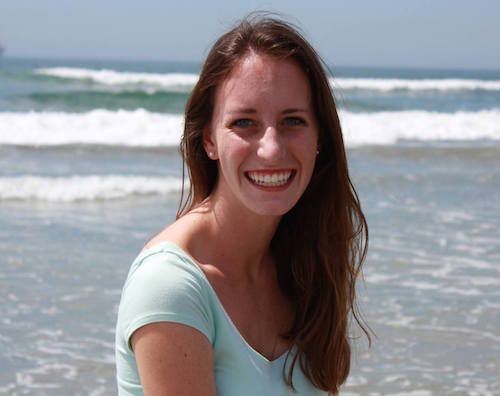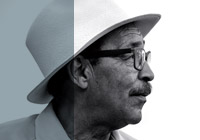The UCLA Grand Challenges aim high: They attempt to bring staff, students, community leaders and experts together to “[solve] society’s toughest problems.” These projects are vast undertakings, described as “the biggest, most collaborative and potentially most transformative efforts UCLA has undertaken to date.” And yet, to some at City Hall or the County Hall of Administration, mention of the challenges evokes curiosity rather than recognition.
Unnoticed by some in government, the first Grand Challenge, already well underway, is tackling one of the most profound issues facing this region — and the world. Its goal: to make Los Angeles County environmentally sustainable by 2050. A region known for importing its water and generating its power thousands of miles away is looking to break with that history and reimagine itself as self-sustaining.
Leading that effort is a figure new to UCLA but well-known in the Civic Center. Mark Gold is the university’s recently appointed associate vice chancellor for environment and sustainability. To those in the local and state environmental movement, Gold is better known as the longtime head of Heal the Bay, where his pugnacious determination sometimes irritated critics but also won notable achievements in cleaning up the region’s water and beaches.
Gold, importantly, is not a theorist. Brash, impatient and demanding, he’s an activist, now lodged at an institution better known for its landmark research than its local engagement. His job, then, is to connect those who can design the future to those charged with delivering it.
“There’s just so much new innovation that’s occurring here,” he said. “How do you make that real? How do you get that to impact society?”
To begin, you write a plan, and that’s what the Sustainable L.A. team has done. The Five-Year Work Plan, which was released in December 2015, outlines research projects that will serve as a foundation. The goal is to use the findings of those projects to create an Implementation Plan, to be complete by 2020. That, in turn, will lay out concrete steps toward sustainability by 2050.
A plan leading to another plan may suggest bureaucracy more than breakthrough, but supporters say plans are essential for lining up support and completing the project. Before the Work Plan was complete, Gold said, he felt “a little insincere, like I [was] trying to sell a used car.” Now he can point to concrete goals.
The document blends imagination with realism. One project aims to improve the efficiency of offshore wind turbines. Another seeks to develop a device that would both harvest and store solar energy. A third would revamp technologies for treating wastewater. Each proposal imagines specific solutions and offers metrics for analysis and evaluation.
While developing the technology to make these projects achievable is a feat in itself, Gold said the “policy and governance problems are going to be tougher than the technical challenges.” Having worked with local government to change public policy during his time with Heal the Bay, Gold understands that making progress will require a “true collaborative effort” with the government.
Internal collaboration is key as well. Most scholars are isolated in their research, but this task is interdisciplinary, and the Grand Challenge thus tests university habits. Collaboration between the sciences and the humanities, or North and South campuses, requires scholars — more than 150 are involved in this project — to speak languages unfamiliar to both.
“People normally work in their cliques and that’s it,” said Gold, adding that he was pleased with the collaboration that he’s seen so far. Gold acknowledged that this is a protracted undertaking, where success will be measured not by one plan or another but by genuine and lasting societal change. Still, he’s nothing if not confident.
“I’m not in the habit of failing,” Gold said. “I don’t really want to start now.”




















